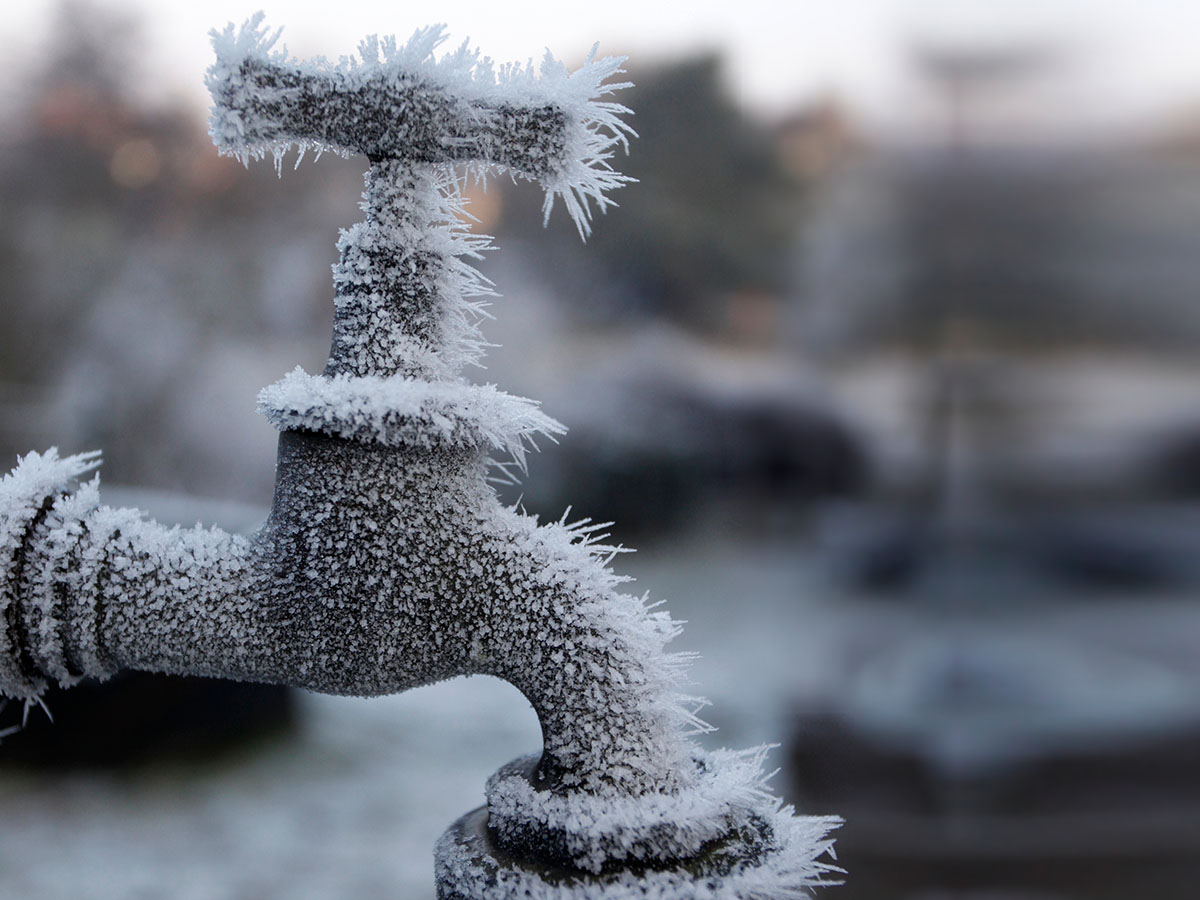Essential Strategies for Avoiding Frozen Pipes in Cold Weather
Essential Strategies for Avoiding Frozen Pipes in Cold Weather
Blog Article
Are you trying to locate information and facts around Winter Plumbing Precautions: Preventing Frozen Pipes?

Winter can ruin your pipes, specifically by freezing pipelines. Here's how to avoid it from happening and what to do if it does.
Intro
As temperature levels decline, the risk of frozen pipelines rises, potentially bring about costly repair services and water damage. Comprehending exactly how to stop frozen pipes is essential for property owners in cold environments.
Avoidance Tips
Protecting susceptible pipelines
Cover pipelines in insulation sleeves or make use of warm tape to protect them from freezing temperatures. Concentrate on pipelines in unheated or exterior locations of the home.
Heating techniques
Maintain interior rooms appropriately heated up, especially locations with plumbing. Open up closet doors to enable warm air to flow around pipes under sinks.
Just how to identify icy pipelines
Try to find reduced water flow from faucets, unusual odors or sounds from pipelines, and noticeable frost on revealed pipelines.
Long-Term Solutions
Structural modifications
Think about rerouting pipelines away from exterior walls or unheated areas. Add extra insulation to attics, basements, and crawl spaces.
Upgrading insulation
Invest in top quality insulation for pipes, attic rooms, and wall surfaces. Correct insulation helps maintain constant temperature levels and decreases the risk of icy pipelines.
Securing Outside Pipes
Yard tubes and outdoor taps
Separate and drain garden hose pipes before winter. Mount frost-proof spigots or cover outdoor taps with insulated caps.
Recognizing Frozen Pipelines
What triggers pipelines to freeze?
Pipelines freeze when subjected to temperature levels listed below 32 ° F (0 ° C) for extended durations. As water inside the pipes ices up, it increases, taxing the pipe walls and potentially triggering them to rupture.
Threats and damages
Frozen pipelines can lead to water disruptions, building damages, and expensive repairs. Burst pipes can flooding homes and create considerable architectural damages.
Indicators of Frozen Piping
Recognizing icy pipelines early can stop them from bursting.
What to Do If Your Pipelines Freeze
Immediate activities to take
If you believe icy pipelines, maintain faucets open to eliminate stress as the ice thaws. Utilize a hairdryer or towels soaked in warm water to thaw pipelines slowly.
Verdict
Stopping icy pipes calls for aggressive actions and fast responses. By understanding the reasons, indications, and safety nets, homeowners can safeguard their pipes during winter.
Helpful Tips to Prevent Frozen Pipes this Winter
UNDERSTANDING THE BASICS: WHY PIPES FREEZE AND WHY IT’S A PROBLEM
Water freezing inside pipes is common during the winter months, but understanding why pipes freeze, and the potential problems it can cause is crucial in preventing such incidents. This section will delve into the basics of why pipes freeze and the associated problems that may arise.
THE SCIENCE BEHIND FROZEN PIPES
When water reaches freezing temperatures, it undergoes a physical transformation and solidifies into ice. This expansion of water as it freezes is the primary reason pipes can burst. As the water inside the pipe freezes, it expands, creating immense pressure on the walls. If the pressure becomes too great, the pipe can crack or rupture, leading to leaks and water damage.
FACTORS THAT CONTRIBUTE TO PIPE FREEZING
Low Temperatures: Extremely cold weather, especially below freezing, increases the risk of pipes freezing. Uninsulated or Poorly Insulated Pipes: Pipes located in unheated areas, such as basements, crawl spaces, or attics, are more prone to freezing. Insufficient insulation or lack of insulation altogether exacerbates the problem. Exterior Wall Exposure: Pipes running along exterior walls are susceptible to freezing as they encounter colder temperatures outside. Lack of Heating or Temperature Regulation: Inadequate heating or inconsistent temperature control in your home can contribute to frozen pipes. PROBLEMS CAUSED BY FROZEN PIPES
- Pipe Bursting: As mentioned earlier, the expansion of water as it freezes can cause pipes to burst, resulting in significant water damage.
- Water Damage: When pipes burst, it can lead to flooding and water damage to your property, including walls, ceilings, flooring, and personal belongings.
- Structural Damage: Prolonged exposure to water from burst pipes can compromise the structural integrity of your home, leading to costly repairs.
- Mold and Mildew Growth: Excess moisture from water damage can create a favorable environment for mold and mildew growth, posing health risks to occupants.
- Disrupted Water Supply: Frozen pipes can also result in a complete or partial loss of water supply until the issue is resolved.
WHY CERTAIN PIPES ARE MORE PRONE TO FREEZING
- Location: Pipes located in unheated or poorly insulated areas, such as basements, crawl spaces, attics, or exterior walls, are at higher risk of freezing.
- Exterior Pipes: Outdoor pipes, such as those used for irrigation or exposed plumbing, are particularly vulnerable to freezing as they are directly exposed to the elements.
- Supply Lines: Pipes that carry water from the main water supply into your home, including the main water line, are critical to protect as freezing in these lines can affect your entire plumbing system.
- Underground Pipes: Pipes buried underground, such as those connected to sprinkler systems or outdoor faucets, can be susceptible to freezing if not properly insulated.
https://busybusy.com/blog/helpful-tips-to-prevent-frozen-pipes-this-winter/

As a fervent reader about How To Avoid Freezing Pipes, I assumed sharing that excerpt was a good thing. Do you know about somebody who is curious about Helpful Tips to Prevent Frozen Pipes this Winter? Please feel free to promote it. We take joy in your readership.
Call Today Report this page